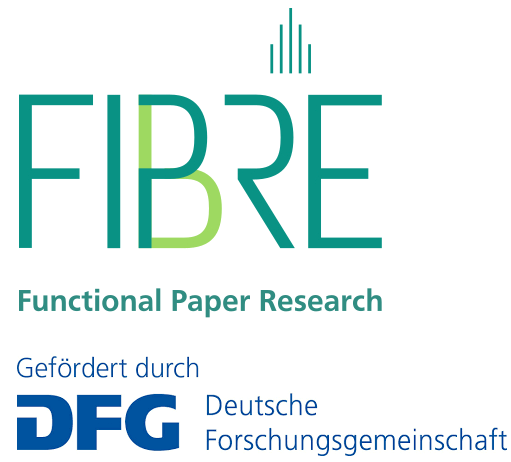Orthogonal Functionalization of Porous Interfaces in Paper Sheets Through Immobilization of Thermally Stable Peptides
The immobilization of sensing molecules, e.g. enzymes or antibodies, on the surface of lignocellulosic fibers is a crucial requirement for any application of paper-substrates in bioanalytical diagnostics. Although paper fibers – consisting mainly of cellulose polymers – provide a large number of OH groups, chemical differentiation and targeted immobilization of the aforementioned (bio)functional molecules is limited. Therefore, a chemical pretreatment of paper fibers or papers is necessary. Currently there exist a number of challenges with regard to the possibility of controlling the fiber-modification, loading density of biomolecules on the fiber, their (remaining) activity and the further use of such papers in often complex bioanalytical reactions. In particular, up to date it is not trivial by common chemical conjugation methods to immobilize biomolecules in a directed, orthogonal fashion on the surface of paper fibers with a high loading density.
In this project, a general method for such directed conjugation strategy of bioactive proteins to paper fibers will be developed, based on a special pre-functionalization of paper fibers with peptides as specific anchor-molecules. In contrast to most proteins, such peptides immobilized on paper fibers are thermally very stable, and can therefore endure high temperatures, typically present during papermaking at the final drying section. After sheet formation, a site-specific immobilization of biomacromolecules will be carried-out by enzyme-catalyzed bioconjugation under mild conditions. Such a “pre-functionalization” of paper fibers have yet not been addressed in literature.
Another important further goal of this project is to understand the influence of the fiber type and morphology as well as the fiber modification on the resulting geometric and chemical structure of the paper sheet, such as the paper's porosity and paper density, hydrophobicity, sorption properties, etc.. The project combines biochemical / bioanalytical fundamental science with fundamental scientific questions along paper engineering and –chemistry.
With respect to a long-term development of the project, the overall aim is to systematically analyze how adjustable paper properties affect the activity of enzymes and antibodies. In particular, it will be examined which chemical conjugation methods for surface modification of paper fibers with peptides and which biocatalytic conjugation strategies of the proteins with regard to loading density and biological activity are particularly suitable for bioanalytical applications. The results of this work will provide the basis for future scientific work towards a detailed understanding of microfluidic papers with tailored biocatalytic properties.






